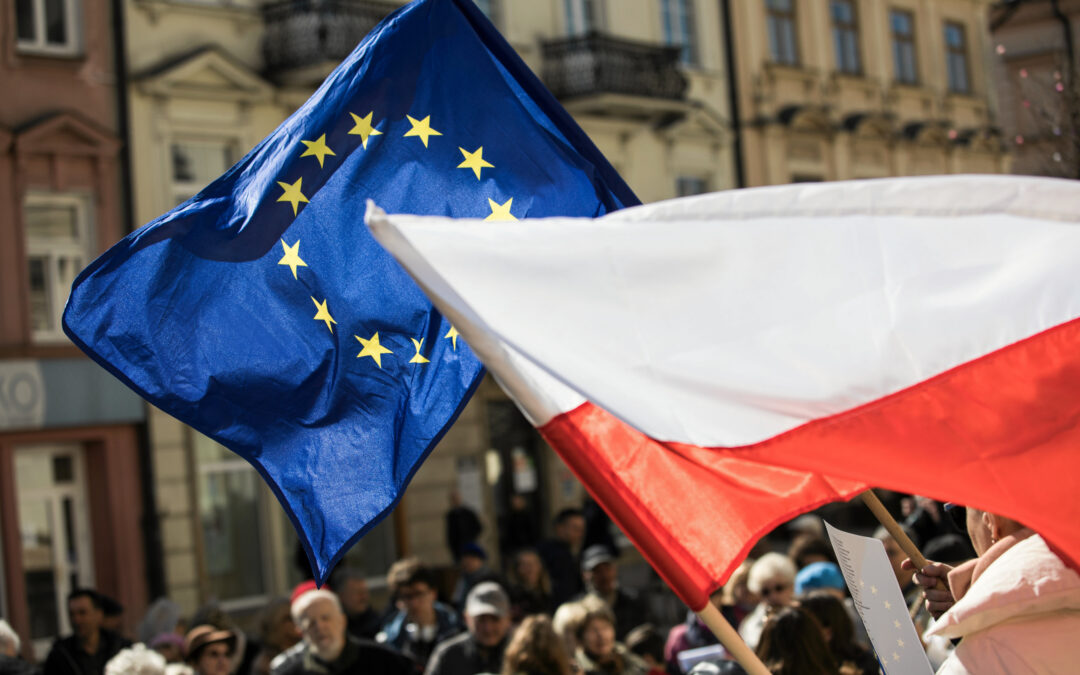The Polish ambassador to Berlin says that, with Germany and other countries succumbing to postmodernism and “gender ideology”, Poland now stands alone as “the last bastion of the West” holding out against “the fall of Europe”.
He also criticises German media for producing “anti-Polish propaganda” and for supporting the Polish political opposition, including “clear interference” in the recent presidential election.
Andrzej Przyłębski, who has served as ambassador since 2016, made the remarks in an interview with right-wing German newspaper Junge Freiheit and reported by wPolityce, a conservative Polish news website.
“Germany, and in fact the entire European West, has changed a lot,” said Przyłębski. “Today’s Europe is founded on principles that lead to a dead end.”
As examples, he pointed to “the widespread atomisation of societies, family breakdown, growing hostility towards the Christian faith, the domination of gender ideology and destructive criticism of European culture”.
“We Poles, at least the majority, can no longer recognise ourselves in this Europe,” he added. “We are alone as the last bastion of the West.”
Przyłębski warned that the “postmodernism stemming from French and American universities is fundamentally changing our view of reality – so much so that it will lead to the fall of Europe”.
In particular, he decried the “triumph of narrative” over “truth”, warning that “if we renounce the truth – that is, true dialogue free from political correctness – then we Europeans can ‘pack up’ and announce the end of our culture and greatness”.
The ambassador added that this postmodern approach also “unfortunately shapes today’s journalism – and is clearly visible in the narrative of the German media about Poland”.
“I am horrified to see what is being written about my country in Germany,” Przyłębski told Junge Freiheit, arguing that coverage of Poland in leading German outlets is overwhelmingly negative, one-sided and often inaccurate.
Reporting on Polish politics and judicial reform gives the false impression that something terrible is happening, said Przyłębski. This arouses “hostility” towards Poland among Germans while also leaving German politicians misinformed about the situation.
The Polish government has pursued a radical overhaul of the judiciary, leading to regular clashes with the European Union over the rule of law. Since PiS returned to power in 2015, Poland has fallen rapidly in international rankings of democracy, rule of law and media freedom.
Przyłębski, however, defended the government’s actions, telling Junge Freiheit that they were necessary in order for Poland to overcome “post-communism” and have brought “measurable success”.
The ambassador is privately the husband of Julia Przyłębska, the head of Poland’s Constitutional Tribunal and a close associate of Jarosław Kaczyński, chairman of the ruling Law and Justice (PiS) party.
In 2016, Przyłębska was engineered into the presidency of the court by PiS and President Andrzej Duda in an apparent breach of procedures, as part of the judicial changes that have prompted protests in Poland and criticism from international institutions.
The Polish ambassador made clear that the misreporting – as he sees it – of Poland in German media is no accident. Rather, it is an attempt at “clear interference in our internal affairs”, including by trying to help the opposition during Poland’s recent presidential election campaign.
Newspapers such as Frankfurter Allgemeine Zeitung, Die Welt and Süddeutsche Zeitung intentionally produce “anti-Polish propaganda”, said Przyłębski, adding that he has written to their editors calling for such actions to “finally end” and for “a path to honest journalism to be found”.
Ahead of last month’s presidential election, Duda and PiS accused German media of seeking to interfere in the campaign in favour of the opposition. At a campaign rally, Duda condemned Die Welt’s Warsaw correspondent by name, saying that he was part of a “German attack in these elections”.
“The Germans want to choose the president in Poland,” said Duda. The Polish foreign ministry summoned the German chargé d’affaires to discuss “manipulations…in German media…creating the impression of engagement on the side of one of the candidates in Poland’s election”.
Duda’s criticism was focused not only on media in Germany itself, but also Polish outlets with German owners, some of which have been critical of the president and government.
Przyłębski also took up this theme in his interview with Junge Freiheit, saying that German-owned Polish media manipulate the public by claiming that the government is “nationalist”, “anti-European” and “violates the rule of law”.
Such media have given up their traditional role of describing the world and instead now seek to change it through “ideologisation in the sense of left-liberal aberration”, said the ambassador.
This, he claimed, has helped to turn 45% of Polish voters against the government; without it, the figure would be more like 20%.
Since the presidential election, PiS chairman Jarosław Kaczyński has reiterated his party’s longstanding desire to “repolonise” Polish media by reducing foreign ownership. He expressed hope that this can be completed during the current parliamentary term.
Main image credit: Jakub Orzechowski / Agencja Gazeta

Daniel Tilles is editor-in-chief of Notes from Poland. He has written on Polish affairs for a wide range of publications, including Foreign Policy, POLITICO Europe, EUobserver and Dziennik Gazeta Prawna.




















